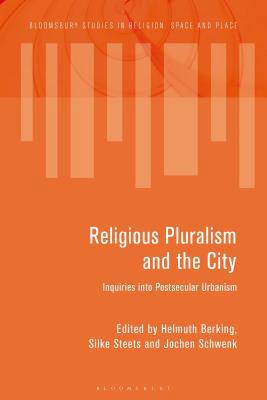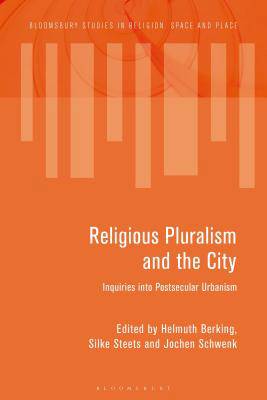
Door een staking bij bpost kan je online bestelling op dit moment iets langer onderweg zijn dan voorzien. Dringend iets nodig? Onze winkels ontvangen jou met open armen!
- Afhalen na 1 uur in een winkel met voorraad
- Gratis thuislevering in België vanaf € 30
- Ruim aanbod met 7 miljoen producten
Door een staking bij bpost kan je online bestelling op dit moment iets langer onderweg zijn dan voorzien. Dringend iets nodig? Onze winkels ontvangen jou met open armen!
- Afhalen na 1 uur in een winkel met voorraad
- Gratis thuislevering in België vanaf € 30
- Ruim aanbod met 7 miljoen producten
Zoeken
Religious Pluralism and the City
Inquiries Into Postsecular Urbanism
€ 51,95
+ 103 punten
Omschrijving
Religious Pluralism and the City challenges the notion that the city is a secular place, and calls for an analysis of how religion and the city are intertwined. It is the first book to analyze the explanatory value of a number of typologies already in use around this topic - from "holy city" to "secular city", from "fundamentalist" to "postsecular city". By intertwining the city and religion, urban theory and theories of religion, this is the first book to provide an international and interdisciplinary analysis of post-secular urbanism.
The book argues that, given the rise of religiously inspired violence and the increasing significance of charismatic Christianity, Islam and other spiritual traditions, the master narrative that modern societies are secular societies has lost its empirical plausibility. Instead, we are seeing the pluralization of religion, the co-existence of different religious worldviews, and the simultaneity of secular and religious institutions that shape everyday life. These particular constellations of "religious pluralism" are, above all, played out in cities. Including contributions from Peter L. Berger and Nezar Alsayyad, this book conceptually and empirically revokes the dissolution between city and religion to unveil its intimate relationship, and offers an alternative view on the quotidian state of the global urban condition.Specificaties
Betrokkenen
- Uitgeverij:
Inhoud
- Aantal bladzijden:
- 248
- Taal:
- Engels
- Reeks:
Eigenschappen
- Productcode (EAN):
- 9781350136656
- Verschijningsdatum:
- 31/10/2019
- Uitvoering:
- Paperback
- Formaat:
- Trade paperback (VS)
- Afmetingen:
- 156 mm x 234 mm
- Gewicht:
- 353 g

Alleen bij Standaard Boekhandel
+ 103 punten op je klantenkaart van Standaard Boekhandel
Beoordelingen
We publiceren alleen reviews die voldoen aan de voorwaarden voor reviews. Bekijk onze voorwaarden voor reviews.










